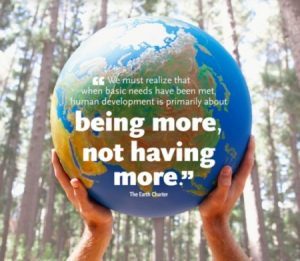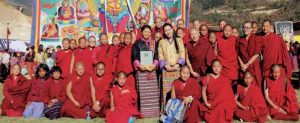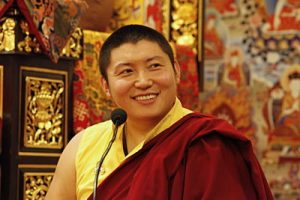The title seems obvious enough. That’s why a closer look at the phenomenon of potential misidentification of authoritative figures will be treated here, the mechanisms causing it, and the dangers it involves.
As with any art, science or field of human activity, in order to attain a level of mastery in that field there’s a gradual and systematic process involved. This also includes the art of living, where the concepts of sukha (from Pali and Sanskrit – implying “ease and well being”) in the Eastern tradition and eudaimonia (from Greek – “well being of spirit”) being its Western counterpart can be characterized as the desirable and successful outcomes.
The accumulation of knowledge and insight derived from experience will be severely impeded or outright impossible if attempted with disregard for the fruits of all previous such endeavors. A fitting example, from mathematics, is the necessary and consecutive acquisition of mastery in arithmetic, algebra and trigonometry before even attempting to comprehend calculus. In the words of the great natural philosopher and theologian Isaac Newton, the importance of recognizing this gradual growth as the extension of pre-existing accomplishments takes the form of a homage: “If I have seen a little further, it is by standing on the shoulders of giants”. The example of Newton’s humble recognition of previous achievements has additional significance if we consider his own great body of lifetime accomplishments.
Whereas in the natural or abstract sciences knowledge is often the primary goal in and of itself, its application being the domain of other arts such as engineering, in the philosophies of life the goals are the aforementioned sukha and eudaimonia, knowledge taking a functional role becomes a guide in their attainment. Hence, in the possibility of comparative studies, one cannot fail to notice striking similarities among the tenets of those philosophies which lived to acquire a systematic treatment and entered the literary tradition. Virtuous conduct, mindfulness, self knowledge, compassion, respect for one’s parents, elders and teachers are but just a few of those values whose omnipresence in philosophies borne from diverse cultural traditions serves as an indirect proof of the universal validity of those values. We tend to heed the advice of those whom we deem as experts in a given field. Following old fisherman’s advice where to cast the net is bound to be beneficial, as is the advice of a spiritual master respectfully representing some philosophical tradition concerning how to deal with one’s anxieties and existential angst.
The tendency to identify authorities representing various fields of endeavor is inherent to humans. It can be interpreted as an evolutionary trait which optimizes the gathering of useful information from the environment. In Carl Jung’s philosophy a counterpart to this inherent tendency to identify particular authorities, in the art of the philosophy of life in particular, is the archetype of a sage. Because of this inherent need for authority, it is paramount that the choice is appropriate, since the consequences of projecting this archetype on a false source inevitably leads to the detriment of the individual and the community.
Considering the stories of elders at least as relatively trusted sources of modern historical facts, can provide a safety buffer and perspective aiding a more thoughtful and critical interpretation of current affairs. The advice of elders augmented with a rudimentary exposure to the opinions of well-established academics makes an individual less vulnerable to the potential manipulation of facts by the media at the service of politicians and corporate establishments motivated by power and greed. A notable and typical technique used by the latter mentioned is creating myths which incite fear, which in turn causes thoughtless and instinctive behavior and as such easy to control.
Following consistently and diligently the teachings of a legitimate spiritual authority makes one less vulnerable to fall prey to insidious claws of sects and charlatans (there’s a huge market out there preying on our ignorance!). One of the more important benefits of a systematic and guided self development, aside from the natural outcome of well being and inner peace, is the acquisition of insight; being able to read between the lines in our modern world, over saturated with information, by sieving through its content consisting of a myriad of useless, erroneous and misguiding elements and picking out what’s relevant and valuable.
“[…]; intelligence is not information alone but also judgment, the manner in which information is collected and used.” – Carl Sagan (my emphasis)
Insight acquired through systematic, diligent, and guided (!) learning provides one with perspective which reveals structures, relations and truths invisible to a short sighted ignorant eye.
A few years ago in a philosophy lecture in one of Australia’s leading universities, one of my professors made some claims about the record level of brightness of the planet Mars and its close passage to Earth. Having assumed the authority of the Internet on almost anything, as most of us often do due to its facility of access, he made a claim which turned out to be completely bogus. Apologizing the next week, after having consulted his astrophysicist friend – the authority on this subject, he appealed to us that we exercise utmost caution when fishing for reliable information.
In sum, our well-being can be considered as the desirable outcome of the art of life, and as such is proportional to the level of the mastery of the latter. Also as with any other art the choice of one or a number of reliable and legitimate authorities on the subject is of utmost importance, since this will ensure a skillful navigation through the rough seas of life’s trials and dire straits. This was always true, however in our modern world suffocating under the torrent of information, it has become an urgent priority.
















